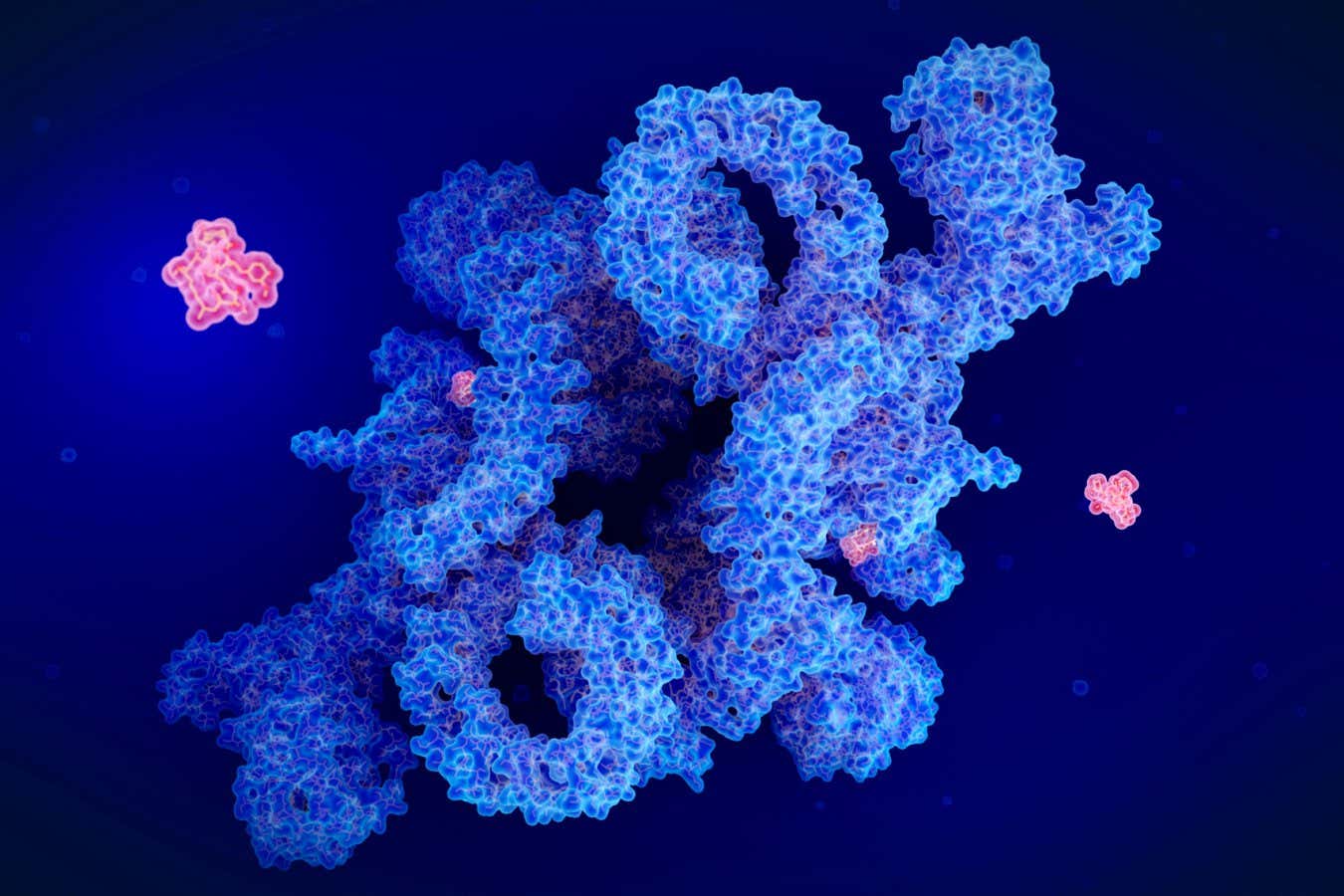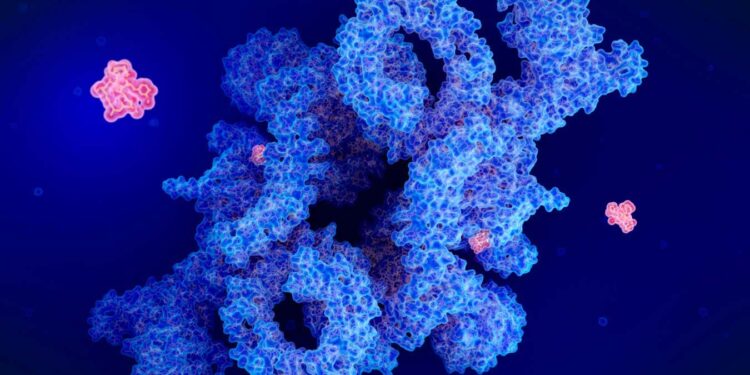
Illustration of the drug rapamycin (red) blocking a protein called mTOR (blue)
Science Photo Library/Alamy
The drug rapamycin’s anti-ageing effects could at least partly be due to it preventing DNA damage in our immune cells – an understanding that might help us unleash its potential as a life extender.
Originally developed as an immune suppressant for people undergoing organ transplants, rapamycin blocks the action of the mTOR protein, which is key in cell growth and division. At low doses, it has been shown to increase lifespan in animals such as flies and mice, possibly by interfering with processes that lead to signs of ageing, such as inflammation, cellular breakdown and reduced function of the mitochondria that power our cells.
Now, Lynne Cox at the University of Oxford and her colleagues have found that rapamycin also seems to stop DNA damage in a type of immune cell. DNA damage is a major driver of the ageing of our immune system, which accelerates ageing in the entire body.
The researchers uncovered this when treating human immune cells called T-cells, a type of white blood cell that fights off infections, with rapamycin while they were also exposed to an antibiotic called Zeocin, which causes DNA damage.
They found that rapamycin reduced DNA damage and tripled the cells’ survival rate compared with those only exposed to Zeocin.
The researchers saw no evidence that this was occurring as the result of another of rapamycin’s effects, such as stopping cellular breakdown. “Whether you use the rapamycin before you induce damage, during the damage or after the damage, we always see this mechanistic effect,” says team member Ghada Alsaleh, also at the University of Oxford.
The speed of the effect also suggests it was happening directly. “The impact is so quick, it looks like it is impacting the DNA damage response and the accumulation of [DNA] lesions within about 4 hours, so I don’t think it can be a downstream consequence of the other things being affected,” says Cox.
Matt Kaeberlein at the University of Washington in Seattle says the study supports rapamycin having a direct protective effect on DNA, but “stops short of a definitive mechanism”. The researchers hope to find this by investigating rapamycin-induced changes to RNA and proteins produced in immune cells.
In another part of the study, they assigned nine men, aged between 50 and 80, to take either 1 milligram per day of rapamycin or a placebo. After eight weeks, blood tests showed that the T-cells of the men on rapamycin had less DNA damage. There was also no drop in the overall number of white blood cells in either group, suggesting that rapamycin doesn’t negatively affect immune function. “We’ve shown it’s not harmful at low doses, and this is a critical point,” says Cox.
Tackling DNA damage to immune systems could be a route towards reducing overall ageing, says Cox. And Alsaleh says rapamycin could even be used preventatively, perhaps to ward off DNA damage to astronauts exposed to cosmic radiation.
“Rapamycin could also be particularly useful for aspects of ageing where DNA damage is a primary driver, such as skin ageing,” says Kaeberlein, pointing to evidence that topical rapamycin reduces markers of ageing in human skin. But he adds that as the experiments by Cox’s team used an antibiotic to cause DNA damage, extrapolation to damage from other causes, such as radiation, should be cautious.
Zahida Sultanova at the University of East Anglia, UK, notes that as the placebo-controlled experiment was only done on older men, it is important to also do trials in women and people of different ages. Studies in non-human animals suggest that rapamycin can have sex-specific and age-specific effects.
Topics:
Source link : https://www.newscientist.com/article/2494541-rapamycin-may-extend-lifespans-by-protecting-against-dna-damage/?utm_campaign=RSS%7CNSNS&utm_source=NSNS&utm_medium=RSS&utm_content=home
Author :
Publish date : 2025-09-02 17:00:00
Copyright for syndicated content belongs to the linked Source.



